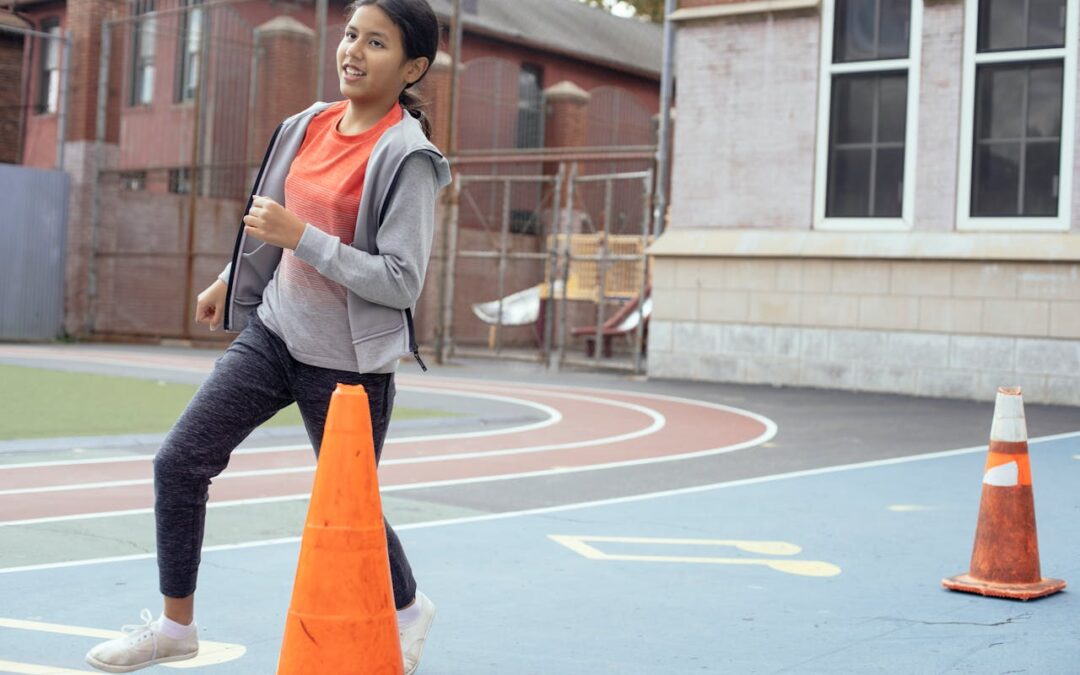As a market-leading sports and physical education company, we recognise the crucial role of diverse and holistic approaches in creating engaging and comprehensive physical education experiences for children. One such approach that has proven effective in fostering long-term engagement in sports and physical activity is multisport programmes. These programmes offer children the opportunity to explore a variety of sports and activities, helping them develop a range of skills and discover their passions while reaping the numerous benefits that come with regular physical activity.
In this article, we delve into the numerous advantages of multisport programmes in children’s physical education, such as honing a broad range of physical, cognitive, and social skills, supporting well-rounded development, and encouraging long-lasting engagement in sports and physical activity. We will also discuss how multisport programmes promote inclusivity, enabling children of all abilities and preferences to participate in diverse activities that suit their unique needs and interests.
A Comprehensive Approach to Physical, Cognitive, and Social Development
Multisport programmes provide children with a comprehensive approach to their physical, cognitive, and social development by exposing them to a variety of activities. Some key aspects of this development include:
1. Enhancing Physical Skills: Participating in multiple sports enables children to develop a broad range of physical skills. Each sport focuses on different motor skills and abilities, such as agility, balance, strength, and stamina. A multisport programme ensures that children can develop these skills in a well-rounded manner.
2. Strengthening Cognitive Abilities: Engaging in various sports helps children improve critical cognitive capacities such as decision-making, problem-solving, strategic thinking, and concentration. Different sports offer unique challenges and situations, enabling children to expand their cognitive skills and adapt to new environments.
3. Fostering Social Development: Involvement in diverse sports allows children to engage with different peer groups, learn from various coaching styles, and manage contrasting team dynamics, contributing to the development of essential social skills like teamwork, communication, and empathy.
Supporting Long-Lasting Engagement in Sports and Physical Activity
A multisport approach can play a vital role in fostering children’s long-term engagement in sports and physical activity. Key factors contributing to increased interest and commitment include:
1. Combating Burnout: By participating in multiple sports, children reduce the risk of burnout and over-specialisation. A multisport approach allows for greater balance, preventing physical or mental exhaustion and enhancing overall enjoyment and motivation.
2. Discovering Passions and Interests: Multisport programmes enable children to explore a variety of sports, helping them identify the activities they genuinely enjoy and feel passionate about. By discovering their interests and abilities, children are more likely to continue participating in sports throughout their lives.
3. Celebrating Success in Various Forms: With a multisport approach, success can be measured in different ways, such as personal achievements, new skills development, or team accomplishments. This varied perspective on success can encourage children to recognise their own progress and value their unique abilities, positively influencing their engagement in sports.
Promoting Inclusivity and Catering to Individual Needs and Preferences
Multisport programmes can accommodate diverse needs and preferences, embracing a more inclusive approach to children’s sports and physical education:
1. Addressing Different Skill Levels: By offering a range of sports and activities, multisport programmes can cater to children with varying skill levels, ensuring that each child finds an appropriate level of challenge and feels included and supported.
2. Adapting to Physical and Learning Needs: Many multisport programmes can be adapted to accommodate children with different physical or learning needs. By providing individualised instruction and modifications when needed, these programmes allow all children to enjoy sports and benefit from physical activity.
3. Encouraging a Sense of Belonging: Multisport programmes promote inclusivity, creating an environment where children of all abilities and backgrounds can develop sports skills and form meaningful connections with their peers and coaches, fostering a strong sense of community and belonging.
The Implementation of Multisport Programmes in Schools and Communities
To successfully implement multisport programmes, several factors need to be considered:
1. Cooperation and Collaboration: Engage with various stakeholders, such as schools, sports clubs, coaches, and parents, to ensure a coordinated and effective approach to multisport programming.
2. Accessible Facilities and Equipment: Provide access to appropriate facilities, safe sports equipment, and necessary resources for each activity to maximise the effectiveness of multisport programmes.
3. Skilled Personnel: Employ qualified coaches and physical education teachers who can effectively instruct and guide children through various activities, ensuring safe and purposeful participation.
Conclusion
Multisport programmes offer a promising approach to enhancing children’s physical education experiences, providing comprehensive opportunities for physical, cognitive, and social development. By fostering a well-rounded and inclusive approach to sports, multisport programmes encourage long-lasting engagement in physical activity, empowering children to lead healthier and more balanced lives. As a market-leading sports and active education company, Sprint Active Education remains dedicated to embracing innovative approaches such as multisport programmes, contributing to the positive development and well-being of children and families across the UK. Contact us today to get started.

